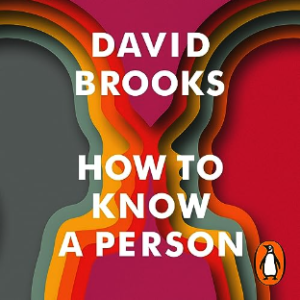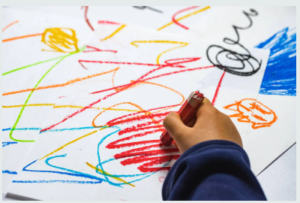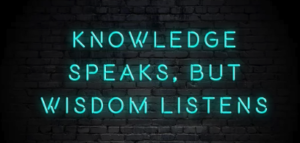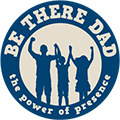In his new book, How to Know A Person, David Brooks explores how we truly get
Being an “Illuminator”
Mr. Brooks describes two types of participants in a conversation. He calls the first a “topper”. Simply put, this is someone who seems to always have something additional or better to say. For example, if you say you shot a ninety-two playing golf this weekend, the topper would respond that he shot ninety-one. If you have recently travelled to Chicago for the first time, the topper will describe the many times he has been to that city. Toppers seem to be thinking about how they can outshine the other person’s story. The focus is on themselves.
On the other hand, there is a person he calls an “illuminator”. In conversation, this person responds in a manner that illuminates the other person. So, when you share your golf score, the illuminator will make comments or ask questions that expand on yours. “That is a wonderful score. Which course did you play? How often do you play? ” Or, “How did you like Chicago? Where did you have dinner? Did you have a chance to go sightseeing? What did you see?” All these questions put the focus on the first person. As importantly, those questions allow the illuminator to know more about the person and build a deeper relationship.
This perspective begs the question, in the two scenarios above, who comes away from the conversation feeling better? Which person feels more valued? The one who has been “topped” or the one who has been “illuminated?
Showing Interest
As parents, isn’t one of our greatest challenges getting our kids to talk to us? Won’t this approach of illumination be valuable when we think about the conversations we have with them? If we constantly think about how we can focus on what our children are telling us and seek to understand, won’t they be likely to talk more?
When we speak with our children, do we show interest in their story? Do we really listen to what they are telling us? Do we make them feel that what they say is important? When the conversation has ended, are they the one who feels best? Illumination is beneficial when they come to tell us about something like scoring a touchdown or their performance in the dance recital or a grade on a test; but it becomes critical when they come to us with a problem or a concern for which they are seeking feedback or advice. We can only truly get to know our children, understand them, help solve their problems and guide them if we listen. When we seek illumination, we seek to listen.
Small Conversations lead to Big Conversations

From Knowledge to Wisdom.
It seems to me as parents we guide our children on a continuum from knowledge towards wisdom. That is, when our children are very young, our purpose is to give them knowledge about how to do things necessary to survive. We teach them to eat, to walk, to say words.
As they grow, that knowledge needs to expand. How to eat in a socially acceptable manner. How to walk on various surfaces, to skip and to run. Adding more words to their vocabulary, forming sentences and creating thoughts.
They continue to grow and our involvement continues to evolve. Parents add wisdom to the knowledge. We add why they should eat foods like fruits and vegetables. How to behave in different social situations. How to use their motor skills to play sports or dance. Flowing from stories of our own experience, our wisdom adds to their abilities to fulfill their own potential.
While children learn more and more… from parents, from teachers and 
Accompaniment
Mr. Brooks proposes that often we just need to “accompany” others. For parents, I think this looks a lot like humility. Similar to a piano player who accompanies a singer, we come to a point when our role evolves again. We learn to just play along, provide the music and support so the child can be the “star” of the performance. We take a back seat knowing that our presence may not be seen in the spotlight, but that our contribution has become critical in a different way.

Illuminate, Add Wisdom and Support
If we have carefully listened to our children as we have illuminated their conversations, we will understand what they want to sing, how they want to perform and what they hope to accomplish. And if along the way we have let them acquire the knowledge and skills necessary, then supplement those with wisdom, our children will be positioned to make good choices, chase their dreams and fulfill their purpose while we accompany them from behind the scenes.
A dad is someone who knows the song in your heart and can sing it back to you if you ever forget the words.





